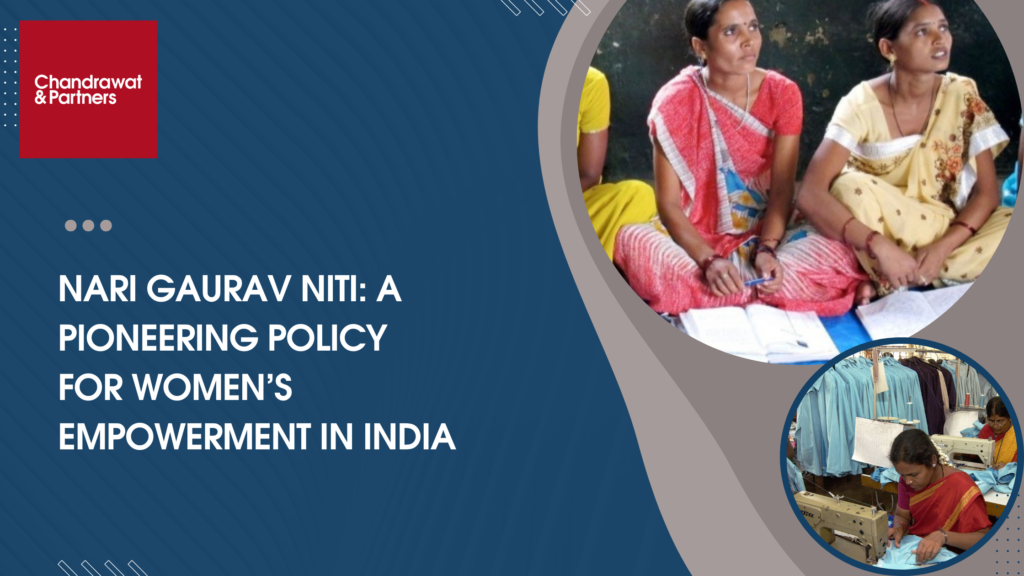Share :
Introduction
The quest for gender equality in India has seen several milestones. One such initiative is the Nari Gaurav Niti (Women’s Pride Policy), a policy introduced by the Gujarat government on 23 January 2002. This blog delves into the Nari Gaurav Niti, its objectives, and its place within the larger women’s empowerment narrative in India.
GENESIS OF NARI GAURAV NITI:
The Nari Gaurav Niti stands as one of the first policies specifically focused on women’s empowerment implemented under the leadership of Narendra Modi during his tenure as Chief Minister of Gujarat. Formulated in 2002 and formally introduced in 2006, the policy aimed at:
- Promoting gender equality:Nari Gaurav Niti sought to break down gender barriers and create a level playing field for women in various spheres of life.
- Sensitizing government departments:The policy emphasized raising awareness within government departments about the social, economic, and educational needs of women.
- Encouraging women’s welfare:It aimed to make government departments more responsive to issues concerning women’s well-being.
IMPACT OF NARI GAURAV NITI:
The Niti’s impact can be seen in several ways:
- Increased Focus on Women’s Issues:The policy brought women’s issues to the forefront of governance, leading to a more focused approach to addressing them.
- Improved Access to Resources:By sensitizing departments, the program facilitates better access for women to government schemes and resources related to education, healthcare, and economic opportunities.
- Setting a Precedent:The Niti serves as a model for other states in India to develop similar policies for women’s empowerment.
A GLIMPSE INTO OTHER INITIATIVES:
The Nari Gaurav Niti isn’t the only policy working towards women’s empowerment in India. Here’s a brief look at two other significant initiatives:
- Nari Shakti Mission:Launched by the Government of India in 2015, the Nari Shakti Mission (Women Power Mission) is a central scheme that aims to holistically empower women. It focuses on providing them with livelihood opportunities, security, and education.
- Women’s Reservation Bill:This bill proposes reserving 33% of seats in the Lok Sabha (lower house of Parliament) and state legislative assemblies for women. While the bill was passed by both houses of Parliament in 2019, it still awaits ratification by a certain number of state legislatures to become law.
THE ROAD AHEAD:
The Nari Gaurav Niti, along with other initiatives, has played a crucial role in advancing women’s empowerment in India. However, gender disparity persists in various areas, including education, employment, and political participation.
Here’s what we can look forward to:
- Effective implementation of existing policies:Ensuring the successful implementation of initiatives like Nari Shakti Mission and the Women’s Reservation Bill is crucial.
- Addressing specific challenges:Tailored interventions are needed to address issues faced by women in different regions and social groups.
- Changing mindsets:Promoting gender equality requires a societal shift in attitudes and beliefs.
CONCLUSION:
The Nari Gaurav Niti stands as a testament to India’s commitment to women’s empowerment. It serves as a stepping stone on the path towards a more just and equitable society. By continuing to strive for the effective implementation of existing policies, addressing specific challenges, and fostering a culture of gender equality, India can create a brighter future for all the women.
For more information or queries, please email us at
enquiries@chandrawatpartners.com




